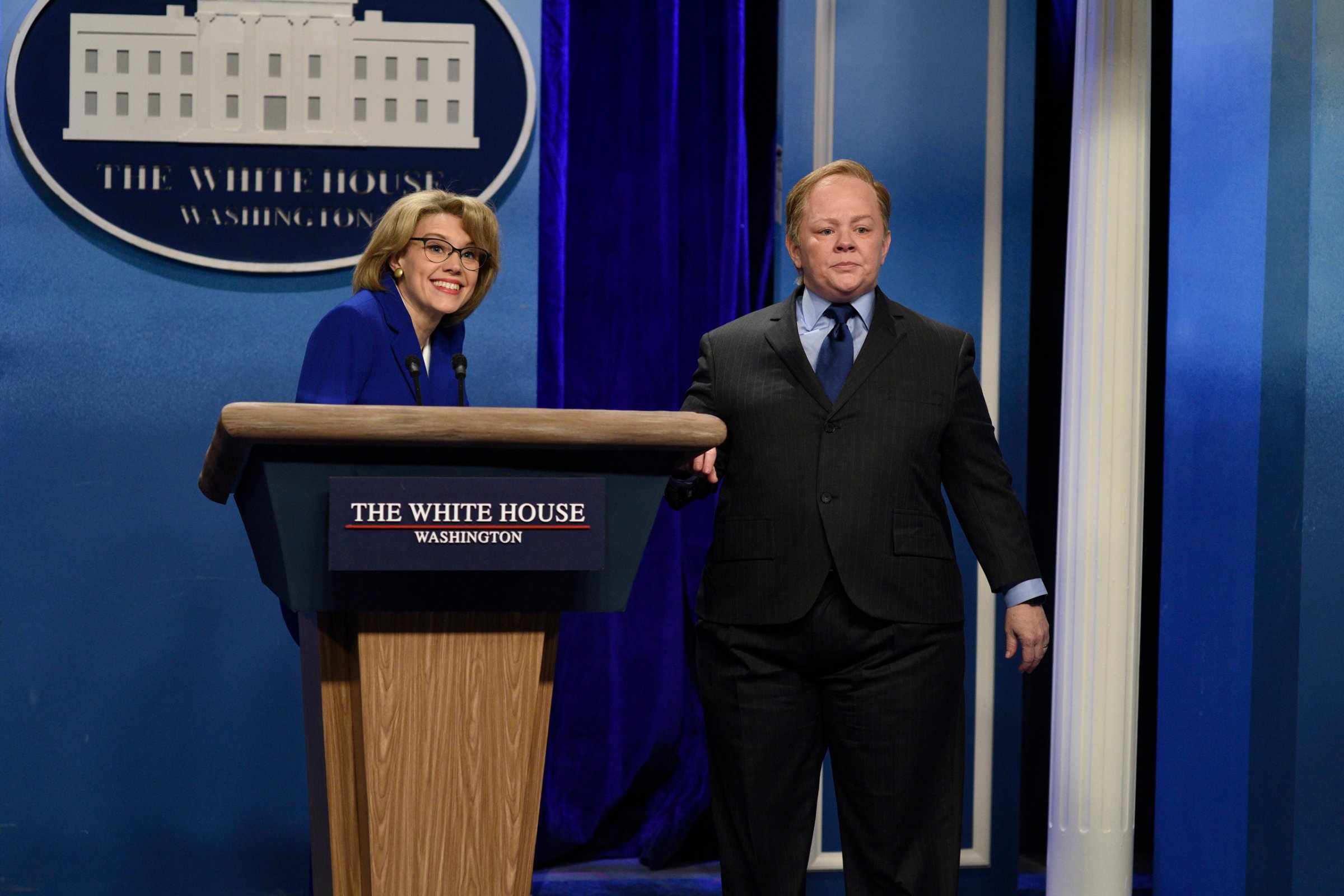
In just a few short weeks, Saturday Night Live has become perhaps the single most vital show on TV. After a rocky start to its 42nd season, every new episode feels like an urgent must-watch. With a president who’s both hosted the show twice and who’s on record, repeatedly, as deploring its portrayal of him, the show is inevitably tied to the news cycle. What’s new is how nimbly the show has learned to use that entanglement to its advantage.
This Saturday, Alec Baldwin, currently the resident impersonator of President Donald Trump, will host. Presumably, it’ll be more full than usual of political humor at the president’s expense. This, like many recent decisions, seems carefully calibrated to needle the chief executive. Last week’s masterful sketch in which Melissa McCarthy disassembled White House Press Secretary Sean Spicer suggested Trump was watching, and made a series of delicately chosen decisions (the first being the casting of McCarthy, the world’s greatest living physical comic) to represent Spicer as oafish and unseemly.
SNL has come a long way in a short time. I’ve written before about its seeming confusion at how to move forward after an election its writers seemed to presume Hillary Clinton would win. The show treated the loss as a tragedy, but thanks to its legacy as an institution intended for a mass audience, wouldn’t or couldn’t express why. The show also seemed, for a time, to fundamentally misunderstand various people in the Trump orbit. For example, Kellyanne Conway was characterized as a frustrated do-gooder cleaning up Trump’s messes, when she in fact has the tendency to catalyze controversy.
The show has found its voice in a vivid way by pitching sketches directly at Trump. It’s hard to know whether it’s worse to be lampooned or ignored—after all, if you weren’t made fun of on SNL, do you exist? (It’s worth noting that caricatures of Democrats have made very few appearances since the election; this does not reflect well on the state of the opposition.)
Is it good TV? Most of the time.
Television is still a powerful medium that is very likely to spur reaction, either in public or private. (See: recent reporting indicating Spicer’s job is in danger thanks to McCarthy’s impersonation.) And various bits of writing—the Spicer sketch, Kristen Stewart’s monologue questioning Trump’s past tweets about her, Aziz Ansari’s recent monologue—have resonated beyond the audience of one at 1600 Pennsylvania Avenue.
On the other hand, the show’s pendulum has swung so rapidly toward granular engagement with the news that it hasn’t always been able to keep up. To wit: SNL hasn’t hired a full-time Trump impersonator, and on weeks Baldwin is otherwise engaged, have to make do without. And a show that addresses politics every time it airs has struggled in “Weekend Update,” the portion explicitly devoted to cover the news.
Saturday Night Live is now more engaged with the news than ever. Though I’ve given it a hard time in the past, its earnest attempt to do something with this moment is remarkable. The show was handed a president whose obsession with old-school media meant he’d hear any message it broadcast. Its rigid institutionalism (90 minutes, once a week, “Weekend Update” in the middle) feels less like a restraint than a welcome tether to reality.
In the chaotic opening days of the Trump era, Saturday Night Live has become a framework for processing the week that was.
More Must-Reads From TIME
- What Student Photojournalists Saw at the Campus Protests
- How Far Trump Would Go
- Why Maternity Care Is Underpaid
- Saving Seconds Is Better Than Hours
- Welcome to the Golden Age of Ryan Gosling
- Scientists Are Finding Out Just How Toxic Your Stuff Is
- The 100 Most Influential People of 2024
- Want Weekly Recs on What to Watch, Read, and More? Sign Up for Worth Your Time
Contact us at letters@time.com